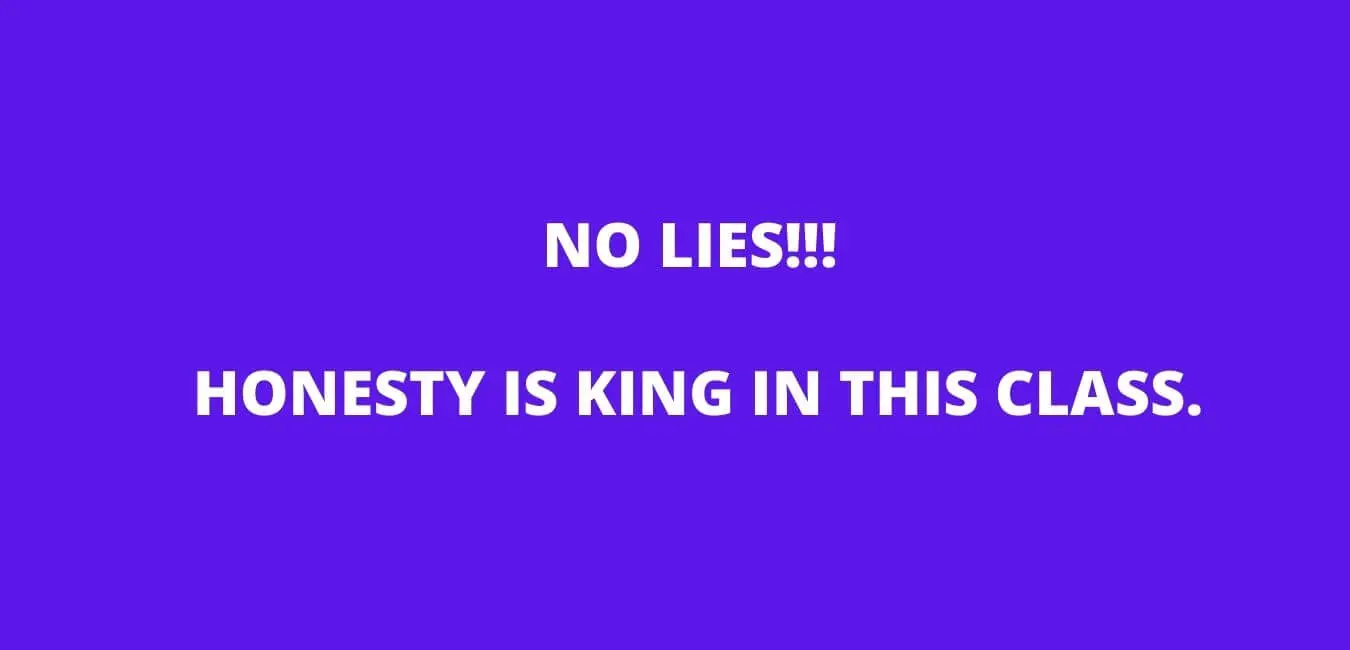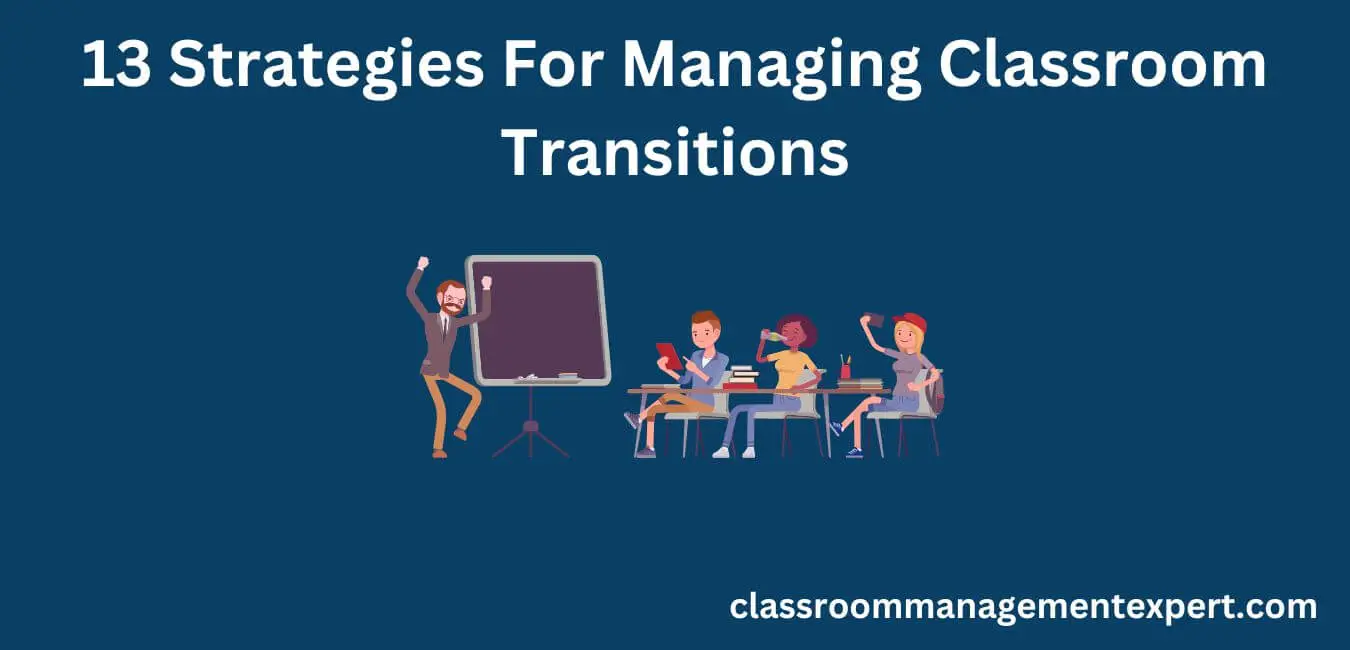Lying seems to be a common occurrence in the classroom. From little white lies about their weekend plans to more serious claims that they didn’t do what you saw them do with your own two eyes. How can we as teachers deal with this? What should we tell them when they lie? Read on for some helpful tips and reminders of the importance of honesty in the classroom.
This blog post is not meant to give definitive answers, but rather provide strategies for dealing with students who lie based on different situations and at various points in time during a student’s school career. We hope these ideas will make it easier for you to manage this challenging issue!
So how can teachers deal with students who lie?
Why Do Students Lie?
It’s not unheard of for students to lie. They might lie about their homework, or they might make up an excuse as to why they can’t go on the class trip. Some students even lie about their grades, claiming that they deserve a higher grade than what they were given.
Why do students seem drawn to lying? Here are ten reasons to consider, along with ways students can be encouraged not to lie.
1. To Avoid Making Matters Worse
Some students think that telling the truth will make things worse than telling a white lie/half-truth/lie by omission. A student who says they got their math grade because the teacher hates them is lying – but there’s no way for the teacher to know if the student got a bad grade because they didn’t study, or because they did something wrong.
2. To Avoid Trouble
Students might lie in order to avoid trouble at school, with family members, or even with friends. Lying about failing a test gives them an excuse not to try again – but it also lets them pretend that they’re still a good student.
3. Want to Avoid Embarrassment
Students might lie to avoid embarrassment. When a student lies about getting an F on their test because they thought it was supposed to be easy, they’re trying to save face because failed the exam in front of their peers.
4. Don’t Want People to Know about Their Problems
Many students don’t want teachers or parents knowing that they’ve been slacking, or that they’ve been going through a rough time. They might not want to admit to dropping their grades because of bad habits (like procrastination or lack of motivation) – instead, students will make up an excuse about why they failed.
5. Want to Avoid Something
Some students think it’s the only way they can get out of doing something they don’t want to do. They might try lying about having a doctor’s appointment in order to get out of attending an upcoming test or quiz, but they’ll feel guilty because they know it’s wrong.
6. Want to be Happy
Some students only care about their own personal happiness and aren’t concerned with the consequences of lying to avoid responsibility. When they’re caught in a lie, they’ll explain that it doesn’t matter because everyone is out to get them.
7. To Cope
Lying can be an easy coping mechanism to avoid the hard work of being honest. Instead of taking responsibility for their actions, some students prefer covering up bad behavior with lies about why they did something wrong.
8. No Trust for Others
Some students lie because they don’t trust others. They might lie to avoid giving out too much information or thinking that nobody can be trusted with the truth.
9. Habit
Lying often becomes a habit, and many students will reach for this method of coping without even thinking about it. When someone lies once, it’s easier to tell another lie – and before you know it, they’re lying all the time and don’t even realize that the habit is destructive.
10. Lack of Empathy
A student might lie because they lack empathy and can’t seem to connect with their classmates. They might see this as a way of getting some attention or getting revenge on someone else for something that happened earlier in class.
11. Impulsivity
Some students lie because they are impulsive. This means that they have the tendency to speak before thinking about what they say. This is often the case of students who suffer ADHD and other related disorders.
How To Deal With Students Who Lie And Deny?
We all know that students sometimes do not tell the truth. When did you first notice a student lying to you? You feel like your relationship with this student has taken a turn for the worse and you don’t know how to handle it any longer. Well, I am here to help! There are many different ways to approach such a situation and it is important to do so with a positive and open mindset. Here are 17 ways on how to deal with students who lie and deny:
1) Be Confident
First, remind yourself that you are an effective teacher who can handle this issue. Remember you are not alone in the trenches called the classroom. You can do it.
2) Reality check
Try to know why the student tells lies. Sometimes students lie to teachers purely out of habit or due to outside forces beyond just their behavior in school. For example, a student might be afraid to tell their parents that they are struggling in school or that their grades are slipping. This means you need to work harder to create an environment where students feel comfortable coming forward and speaking honestly with you.
3) Discuss the Need for Honesty
Talk to students about why it is important for them to tell the truth. For example, if they give you fake excuses or say that they don’t know the answer when they do, then it can show and you may not be able to help them as much.
4) Reward Honest Behaviors
If students continue to lie and deny after this point, focus on rewarding truth-telling behaviors rather than giving consequences for lying or denying. This will help your students learn more about what they should do in this type of situation.
5) Be Calm
Remember that you cannot control students’ actions but you can control your reaction to them. Remain calm at all times and focus on discussing their behavior instead of getting upset with the student or parent yourself.
6) Make Clear Expectations and Consequences for Honesty
Let them know exactly what they are doing wrong so that it is clear and they understand the consequences of their actions. Also include the positive behaviors that you expect from them as well as what they will get in return for those behaviors.
7) Take Note of Every Incident
Be sure to document all incidents, including those where students lie and deny, so that there is a clear paper trail showing your efforts. If needed, share the documentation with the office as well as other teachers.
8) Speak with Parents
If you are speaking to a parent about this issue, be sure to share all documentation and information that will help them understand what is going on at home as well as in school. Remember that parents may not realize that their child is lying or denying because they might not see them as frequently as you do during the school day.
9) Consult Other Professionals
If a student continues to lie and deny, let another responsible adult, especially the school’s counselor, know what is going on so that they can guide the child and help them make better choices.
10) Remind Them
Remind students of how important it is to be honest with adults in authority positions such as teachers or administrators. Remind them of how being honest with you can help you to figure out solutions.
11) Talk about the Effects of Lies in Future
Be sure to talk with students who have a history of lying and denying about the importance of their increased honesty moving forward because it is essential for building trust between you.
12) Remove Privileges
If all else fails, take away privileges until they are ready to be more honest with you.
13) Open Communication with Students
Be sure that there’s open communication between yourself and your students. They should be able to come to you if they need help coping with a personal issue or an assignment that seemed too difficult, without feeling like they’ll be punished for not knowing something.
14) Create Relaxed Classroom Environment
Create a safe environment where students feel like they won’t be punished for making mistakes. Sometimes, teachers might accidentally encourage their students to lie – don’t make them feel like they’ve failed, since many students are afraid of failing (or seeing their parents fail).
15) Give Support
Remind students that you are there to help, guide, and support them through this issue so that they can learn from it. Never take their choices personally because you are simply trying to guide them in the right direction.
16) Understand Every Student’s Situation
Don’t make fun of your students if they tell you the truth. It might be awkward or scary to come to you with an honest answer but showing that you’re not hurt by what they’ve done will help give your students the confidence to be truthful in the future.
17) Give Them Enough Chances
Give your students plenty of opportunities, to tell the truth. Sometimes, this might even mean giving them a chance to turn in work without grading it – they can make up the grade later and you’ll never even know whether or not they got it right. This way, they can avoid lying without having to face any consequences for doing so.
Find out more about why students misbehave in the classroom here.
Final Thoughts
There is no easy way to deal with students who lie and deny. It’s frustrating, because they’re not just breaking the rules and being dishonest – but also undermining your authority as a teacher or administrator. As we outlined in this post, there are 17 key steps you can take to mitigate these behaviors so that it doesn’t happen again. Remember: every student will have different motivations for lying so it’s important to reflect on why they might do this in each unique situation before taking any action. If you need more information about how best to handle students in the classroom, check here for more posts. Thank you so much for reading our blog!

















